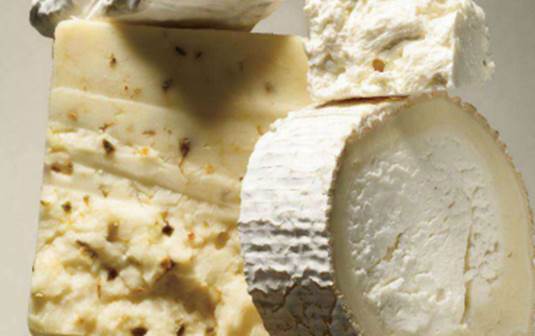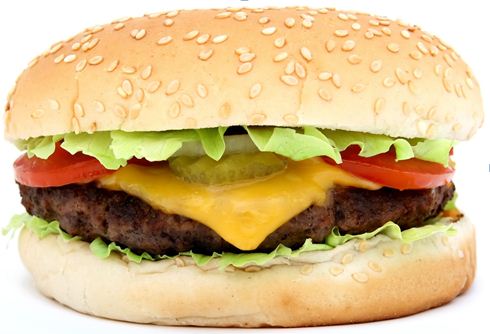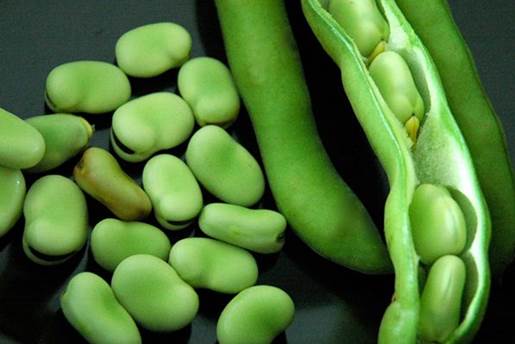The French paradox already has us envying
pleasure loving Parisian women. After all, French women live longer (85.3 year:
versus 80.4 for their America counterparts) despite eating foods high in
saturated fat. N a report in the journal Media Hypotheses suggests that one of
their decadent diet staples soft, molded cheeses Roquefort, Brie, and Camembert
might actually contribute to their better than average life expectancy.
“Fermentation during the aging process of these varieties spurs them to produce
anti-inflammatory compounds, which can help prevent cardiovascular disease,”
says lead researcher Ivan Petyaev, M.D., Ph.D., CEO of Lycotec, a research and
technology firm in Cambridge, England. All it takes is half an ounce a day to
get the benefits, so don’t go overboard at the fromagerie.

6
grams of protein in 1 ounce of Roquefort
Chew on this
Want to munch less in the afternoon? Slow
way down at lunch. A new study in the journal Appetite found that people who
chewed each bite of their midday meal for at least 30 seconds consumed half as
many snacks later in the day as those who ate at their usual pace.
"Focusing on the process may help the brain remember food for a prolonged
period of time, delaying hunger signals," explains coauthor Suzanne Higgs,
Ph.D., a psychology professor at the University of Birmingham in the U.K. It
looks like timing really is everything.
Nix the Burger, Baby!
If you're shaping up your diet before
starting a family, ask your hubby to join you. New research published in the
American Journal of Clinical Nutrition suggests that consuming saturated fats
may reduce sperm count. Men with the highest intake (think hamburgers, fried
foods, pizza all the things your guy may love) had a 41 percent lower count
than those who consumed the least. Lead author Tina Jensen, professor of
environmental medicine at the University of Southern Denmark, speculates that
those eating more of these fats might have other unhealthy habits that could
affect fertility. More research is needed to determine if changing a hopeful
father's diet will solve the problem, but it can't hurt to bring on the
meatless Mondays...and Wednesdays...and Fridays...

If
you're shaping up your diet before starting a family, ask your hubby to join
you
A bitter pill?
You know you should eat plenty of fatty
fish like sardines, salmon, and tuna for their rich stores of omega-3 fatty
acids, but sometimes it seems so much easier to just pop a fish oil pill.
Unfortunately, the two methods might not be equal when it comes to preventing
cardiovascular disease, according to research recently published in the British
Medical Journal. A review of 28 studies showed that consuming two to four
servings of fish a week reduced stroke risk by 6 percent, but taking omega-3
supplements had no significant effect. "In addition to these healthy fats,
fish contains other potentially beneficial nutrients, including vitamin D,
selenium, calcium, and essential amino acids," explains lead author Rajiv
Chowdhury, M.D., a cardiovascular epidemiologist at the University of Cambridge
in the U.K. "You just can't compare the benefits of eating whole foods
with swallowing a pill." Anyone up for some sushi?
Fava beans
Also called broad or horse beans, these
buttery legumes can be a chore to prep - you have to break through two layers before
you reach the edible part but they're worth the effort. Packed with magnesium,
phosphorous, and iron, fava beans are also a great source of plant-based
protein (13 grams per serving). Although they're available canned, "fresh
is best for both texture and flavor," according to Chef Ashlee Aubin of
Wood restaurant in Chicago. We asked him how to get the most from favas, which
hit markets from late spring through early summer.

Fava
beans
Select:
Choose pods that feel heavy for their size that means the beans inside are nice
and firm. Keep in mind that 1 pound yields about 1/2 to 1/2 cup of shelled
beans, so you may need to buy more than you think.
Store: The
beans need to breathe, so keep them in a brown paper bag (rather than plastic)
in your fridge's vegetable drawer. They usually last up to five days, but use
them sooner if they start to shrivel or look like they are drying out.
Prepare: Shell
these legumes as you would peas, using a finger to split the pod and remove the
beans. Then, to loosen the beans' inner casing, blanch them in salted boiling
water for 2 minutes and immediately shock them in an ice-water bath. Any
remaining tough skin should peel away easily. They'll keep for up to two days
in an airtight container in the fridge.
Serve: Favas
taste great tossed into salads or mixed into risottos and soups, or try one of
Aubin's favorite recipes, a quick variation on hummus: Combine 1/2 cup blanched
beans with the juice of half a lemon and 2 table spoons olive oil in a food
processor until smooth. Salt to taste and serve with veggies.
Nutrition score: One 1-cupserving (blanched) = 187 calories, <1g fat, 13g
protein, 9g fiber, 73mg magnesium, 212mg phosphorus, 3mg iron.